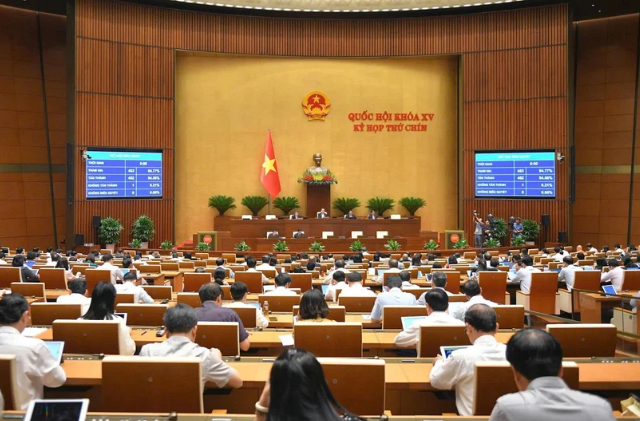Get ready for a wild ride, folks! Vietnam’s National Assembly has given its big thumbs-up to a new digital tech law on June 14th, and it’s bringing crypto assets into the formal rules for the first time. But wait, there’s more! This law also sets out a wider push into AI, semiconductors, and other exciting tech stuff.
Government Classifies Digital Assets
According to local media outlets, the law groups digital holdings into two buckets: virtual assets and crypto assets. Both must use encryption or other digital tech to move or confirm transactions. Neither group covers securities, digital fiat money, or any other financial tools. Lawmakers have until January 1, 2026, to spell out who can issue, trade, or hold these tokens—and what rules they must follow.

Regulatory Rules And Safeguards
Based on reports, the law demands new anti-money laundering and cybersecurity steps that match global norms. Vietnam has sat on the FATF gray list since 2023, and officials clearly want to close that chapter. Agencies will draw up detailed checks on transactions and platforms before the law takes effect.
Ambitious Tech Incentives
The legislation goes well beyond crypto. It offers tax breaks, cheaper land leases, and R&D grants for companies in AI, chip design, and data-center builds. Regional governments must back training programs for engineers and tech workers.
Schools will add digital skills into their courses, too. It’s all part of a bigger bid to rival hubs like Singapore, Seoul, and Shenzhen.

Past Crypto Scams Motivate Action
Lawmakers haven’t forgotten the frauds that hit the market in 2024 and 2025. In February 2025, police rounded up four people behind BitMiner, a fake mining site that took more than 4 billion VND (about $157,300) from over 200 victims.
And back in December 2024, Hanoi cops stopped a scheme called Million Smiles before it drew in 300 would-be investors. That scam had already stolen 30 billion VND (around $1.17 million) from roughly 100 businesses and 400 individuals by selling a bogus “Quantum Financial System” token.
The new law is a clear signal that Vietnam wants to shape its own tech destiny. By January 1, 2026, companies and users will face fresh rules—and fresh chances. If regulators stick to the plan, real projects should find a welcome home.
But if the rollout gets slow or half-hearted, gray-list worries and more scams could follow. For now, the countdown is on.
Read More
2025-06-15 20:44